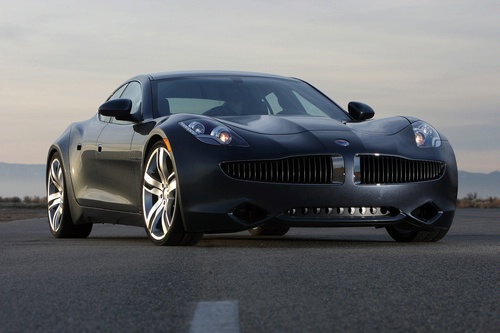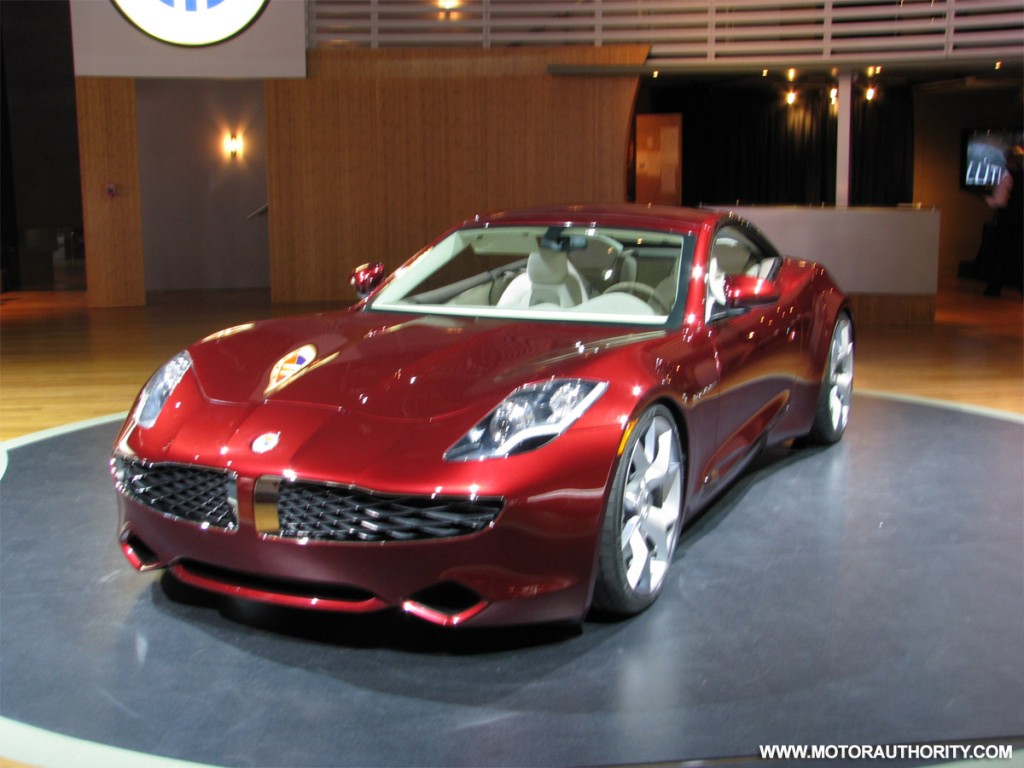Last Friday, startup plug-in hybrid maker Fisker Automotive announced it had raised another $115 million in funds from private backers, including lithium-ion cell supplier A123 Systems and legendary venture capital firm Kleiner Perkins Caufield & Byers.
Buried in the press release was a startling fact: Fisker has switched lithium-ion cell suppliers, less than a year before it delivers its first car. The company said last week it had "signed a multi-year supply agreement with A123 Systems for the lithium-ion batteries that will power the Karma."

2009 Fisker Karma

fisker karma coupe at naias 03

2009 fisker karma plug in hybrid live 05

2009 fisker karma plug in hybrid live 06

fisker karma coupe at naias 05
Staying on schedule, sort of
Deliveries of the Fisker Karma plug-in hybrid luxury sports sedan were originally scheduled to start next May. At last month's Los Angeles Auto Show, Fisker announced that demonstration cars would now arrive in dealer showrooms this fall.
That timing, says company spokesman Russell Datz, remains unaffected by the supplier switch.
From EnerDel to A123
An upbeat statement in the press release shed little light on the reasons for the switch. "Fisker Automotive selected A123 because of the company's ability to meet our performance needs and rapidly scale to our production volume," said founder Henrik Fisker.
"We are committed to developing environmentally friendly cars that don't sacrifice style or performance," he continued. "A123's technology will ensure the Karma delivers."
We asked Datz exactly what happened to cause such a radical change so late in the game. By comparison, General Motors chose Korea's LG Chem as the cell supplier for its 2011 Chevrolet Volt in January 2009, two years before that car is to arrive at dealers late this year.
"Performance requirements"
Datz responded, "We signed a letter of intent with EnerDel in April that would have made them our battery supplier for the Karma if they met our performance and timing requirements. We asked them to do a lot in a very short amount of time."
"Ultimately," Datz said, "the time was too short" for EnerDel to provide cells that met all the requirements. They include sufficient power for an all-electric 0-to-60-mph time of about 7 seconds, enough energy capacity to go 50 miles on a single charge, and six-hour recharging time. He also cited cell life, thermal resilience, and packing as important.
Plan B
Meanwhile, Fisker had "continued working with other battery suppliers, including A123, to be prepared should the EnerDel deal not come through."
And indeed, while EnerDel's lithium-ion cells are something of an unknown quantity for plug-in vehicles, A123 has accumulated a great deal of data on the performance of its cells. The company was one of two contenders to provide cells for the 16-kilowatt-hour battery pack in the 2011 Volt, though it ultimately lost out to LG Chem.
All is not lost for EnerDel, however. "We still have a lot of confidence in EnerDel's technology," Datz stressed, and the company is "open to working with them again in the future."
125 mph and 67 mpg
The Karma's starting price remains at $87,900. Individual Karma buyers are eligible for a $7,500 Federal tax credit for purchase of the electric-drive vehicle. Fisker quotes0-to-60-mph acceleration of 6 seconds (about 7 seconds in all-electric mode), a top speed of 125 miles per hour, and gas mileage of 67 mpg.
Thus far, no journalist has driven the Fisker Karma. In fact, His Royal Highness Frederik, Crown Prince of Denmark, is one of the very few outsiders who's even been behind the wheel of a Karma plug-in hybrid.
Next car from Delaware
Fisker had to raise further capital to get access to $529 million in low-interest loans from the U.S. Department of Energy, both to finish Karma development and to acquire a former GM factory in Wilmington, Delaware.
That plant will be used to build Fisker's next line of cars, a $40,000 midsize plug-in hybrid known as Project Nina, starting in 2012. The October announcement of the factory acquisition was notable for Vice-President Joe Biden blurting out the Nina product lineup of sedan, coupe, and crossover.













